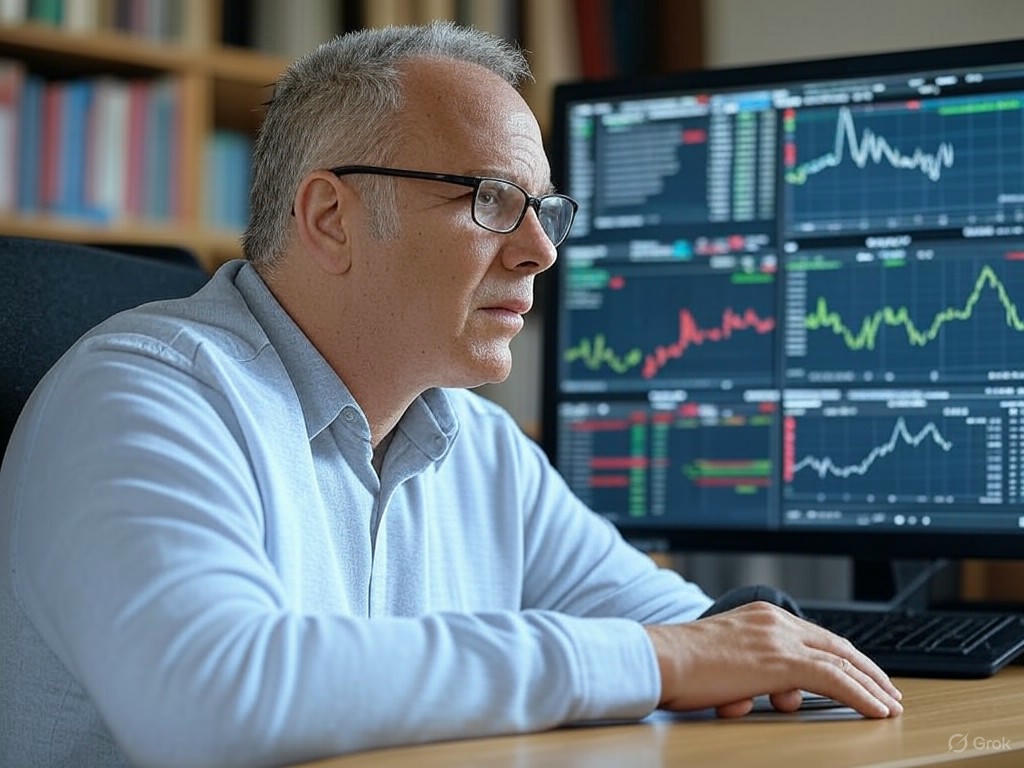AI vs. Wall Street: Can Machines Outsmart Stockbrokers?
In a groundbreaking experiment that’s turning heads in the financial world, a university professor has put artificial intelligence to the ultimate test: picking stocks. Alejandro Lopez-Lira, a finance expert with a passion for innovation, has been exploring how AI models like ChatGPT, DeepSeek, and Grok fare against human stockbrokers in the high-stakes game of market trading. His findings are nothing short of astonishing, suggesting that the future of investment might rest in the hands of algorithms rather than seasoned professionals.
Lopez-Lira’s research began as a curiosity-driven project to evaluate whether AI, often celebrated for its prowess in language processing and data analysis, could handle the unpredictable nature of stock markets. By feeding these AI systems vast amounts of historical financial data, market trends, and real-time news updates, he tasked them with making investment decisions. The results were eye-opening. These digital minds demonstrated an uncanny ability to spot patterns and predict short-term market movements with a precision that often rivaled, and sometimes surpassed, human experts. What’s more, they did so without the emotional biases that frequently cloud human judgment, such as fear of loss or overconfidence during a bull run.
The implications of this experiment are profound for the finance industry. Stockbrokers, who have long relied on intuition, experience, and complex analytical tools, may soon find themselves competing with tireless algorithms that can process information at lightning speed. AI’s ability to analyze millions of data points in seconds—something no human could replicate—offers a glimpse into a future where investment firms might lean heavily on machine-driven strategies. Lopez-Lira himself was struck by the consistency of the AI models, noting that their lack of emotional interference allowed for more disciplined decision-making, a trait often lacking in even the most seasoned traders.
However, this isn’t to say that AI is poised to completely replace Wall Street’s human players just yet. Lopez-Lira cautions that while the technology shows immense promise, it’s not infallible. Markets are influenced by unpredictable factors like geopolitical events or sudden policy shifts, areas where human insight and contextual understanding still hold value. Additionally, ethical concerns about over-reliance on AI in finance, including the risk of algorithmic errors or market manipulation, remain unresolved. Yet, the professor’s work highlights a pivotal shift: AI is no longer just a tool for automation but a potential game-changer in how wealth is managed.
As the financial sector watches these developments unfold, one thing is clear—adaptation is key. Stockbrokers and investment firms may need to embrace AI as a partner rather than a threat, integrating it into their workflows to enhance decision-making. Lopez-Lira’s experiment serves as a wake-up call, urging the industry to rethink traditional approaches. The age of AI-driven investing is dawning, and those who fail to evolve risk being left behind in a market increasingly shaped by machine intelligence.


